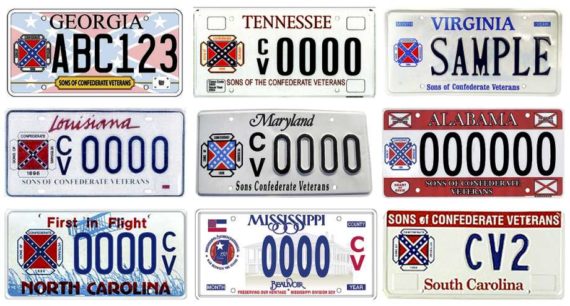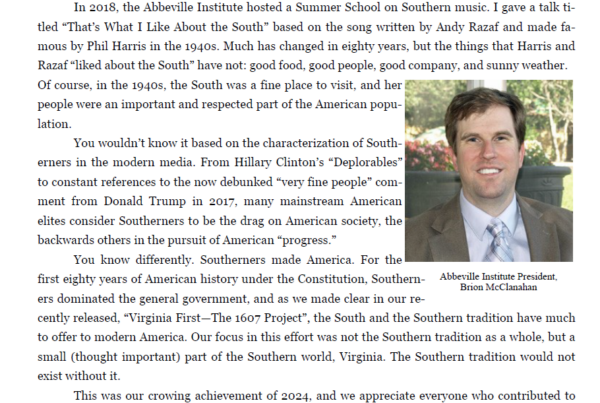I try to collect all the business that I must do in Raleigh into one day. One trip a week into North Carolina’s increasingly cosmopolitanized and rapidly de-Southernized capital city is about all I can take these days: it’s become too much like just about any other homogenized, faceless metropolis in any other part of the country. Most of Raleigh’s historic and traditional Southern charm and character have been erased and overawed by transplants and interlopers from “up North” and elsewhere who feel that their mission in life is to remake the Tar Heel State’s capital into a copy of the decaying cities they left behind! Unlike Columbia, South Carolina, Raleigh wasn’t burned by Sherman back in 1865, but the city fathers back then, I’m certain, would be appalled at what has happened since then to a once gracious Southern city. As the late superb Southern writer Tom Landess once said about modern-day Atlanta: “Where is Sherman when we really need him?”
When going into town I usually park in the public for-pay lot across the street from the North Carolina State Archives where I used to be gainfully employed. It’s a short block to the historic old North Carolina State Capitol (1840), where on May 20, 1861, North Carolina representatives voted unanimously to secede, and a short, usually pleasant walk to most any office or business downtown. Curiously, there are some, usually newer residents of the capital city (mostly transplants, I suspect) living either out near Cary and Apex or way up in the northern extremes of the city, past the outer beltline, who have never even been “downtown” (when I was working downtown I used to get queries from persons who wanted to come to the Archives, but had no idea at all how to get there).
Anyway, I was making one of my mostly weekly forays into what has become for me “the heart of darkness,” and I parked my 2006 Kia Spectra in the public lot. The lot was nearly full of cars, and as I got out I viewed literally hundreds of mostly women, but a few men and children tagging along, all gaily vested in summertime outfits, many carrying placards and signs.
Almost immediately I was aware that these folks were protesters assembled in the capital city for some event, and from their signs—the ones I read—they were there to protest President Trump, his immigration policies, “police brutality,” those “racist” Confederate monuments, “income inequality,” and a multiple of other societal “wrongs,” all of which I would say were on the Left, or better said, the Culturally Marxist Left.
One lady who walked by my car apparently noticed my state-issued Sons of Confederate Veterans license plate with its Battle Flag and the sticker I affixed to my car back in 2015: “Putin for President,” which always gets a few views and second-takes!
I smiled at her—as I was always taught to do by my good Southern parents—and said: “How’s it going?” The lady (she probably wouldn’t have liked that word) responded: “I’m great.” Then she added almost immediately: “Why that racist Confederate license plate and that Putin bumper sticker?”
Now, let me describe this female: she could have passed for anyone’s favorite aunt. She had greying hair, large sun glasses, a smart-looking summer dress, and a large handbag. She could have been on her way to vacation Bible school for all I knew. She was white and from her demeanor appeared to be middle or upper middle class. At the beginning of our short tete-a-tete she had one of those frozen plastic smiles on her face that you see on various store clerks at the end of a long work day or perhaps on a car salesman if he thinks you might purchase a vehicle from him. But when she opened her mouth and spoke, it was with a distinctly clipped non-Southern accent. As my grandfather used to say, I knew “she wont from around here!”
I responded to her question politely, with a smile on my face: “The license plate is state-issued, and it means that I am a member of the North Carolina Sons of Confederate Veterans, which is a heritage group defending our state’s traditions and history.” And I added with a broader smile: “The Putin sticker is mainly there to provoke thought…and maybe conversation.”
I could tell from the lady’s expression that she wasn’t at all amused. “These are racist and fascist symbols!” she exclaimed, becoming agitated as she spoke.
“Not really,” I responded. I tried to smile, but it was no use.
I changed the topic: “Are you here for a protest,” I asked. She answered huffily: “Yes, I am with the North Carolina Peace Action Center. We believe in peace, in pacifism. I’m a member of the United Church of Christ, and we believe in international brotherhood and social justice, equality, and the dignity and rights of the individual.” (I think that was what she said, but I am only summarizing her). “We are protesting fascism and racism, and demanding full equality and voting rights, and that our legislature take immediate action to stop upholding white privilege!”
At that point I understood that this brief conversation was going nowhere and that nothing I could say, other than forced pleasantries, might make matters better. So, I just smiled, hoping to quickly end the conversation. But I couldn’t help myself and had to say one last thing as I tried to get away: “Equality doesn’t exist in this world. Respectfully, I would suggest that all those cultural Marxist slogans you’re stating only end in much greater pain, hardship, and social disaster. Now, I must really go to my appointment. Nice to meet and talk with you.”
I thought that would end it, but it did not. And before I could steal away, she uttered in a rising crescendo: “You must be Trump supporter!” As I continued to move away from her, I nodded my head.
“Trump supporters are f—ing fascists! You neo-Confederates are racists!” she angrily shouted. And I thought if I didn’t move on quickly she might slug me with her handbag.
There it was: from this respectable looking lady, who probably was around 60, certainly not impoverished (materially), most likely college or university-educated, a member (apparently active, as well) in an established mainline Protestant church—the “F-bomb,” uttered at a stranger, someone she had just casually met getting out of his car on a hot summer day in Raleigh, North Carolina. She had never seen me before (unless—extremely doubtful—she had attended a Confederate flag event!), she didn’t know my name—but she understood correctly that I was a “Trump supporter” in 2016, and obviously, with that Confederate license plate, well, then, I was the epitome, the symbol, of all that stood in the way of her goal of remaking America into a cultural Marxist utopia.
“Full equality?” And I was reminded of the “equality” pictured by various writers who had either experienced the Communist kind or who were wise enough to understand what it meant: George Orwell’s depiction in his fanciful novel, Animal Farm, but even more aptly, perhaps in Arthur Koestler’s dystopian novel Darkness at Noon (1940), a thinly-veiled account of Stalin and his great purges, or even more, by the late Spanish traditionalist, Rafael Gambra, in his marvelous volume, El silencio de Dios (1967), which desperately needs an English translation.
I don’t think that protesting woman, despite her probable university training and membership in the UCC, would have fathomed anything those writers wrote, or understood anything they were saying. And she would never understand what Southern heritage means and encompasses.
What I found perhaps most disturbing in this short encounter—and something not even the Stalinists of old were that guilty of—was the near complete decline linguistically, in language. How had things in our society degenerated so far that a perfect stranger would, after less than two minutes of conversation, decide to unleash the “f-bomb” on me? Has our national discourse declined this far?
And, in reflecting, the answer is a definite “yes,” and all we need to do is make a cursory search online (or via the television) of just recent statements and imprecations uttered by the more noteworthy minions of the Left in American society. Just before I began writing this column, I was able to go online and find about fifteen instances in which the foulest four-letter words were spoken publicly, to national audiences, or to large groups of online recipients. Robert De Niro or Peter Fonda, anyone?
And, no, I do not accept the faux-argument that it was Donald Trump who began all this decline and abuse in the English language. This degradation was there in full force long before he ever became president—it was there in the dialogue sequences of almost every Hollywood block-buster since at least the 1980s. It was there on our college campuses, countenanced by the professoriate; it was there in our culture. It was there for years in the vicious attacks on Confederate heritage and our symbols. All Donald Trump did was tear off the scab which thinly disguised the gutter mindset of our supposed political, cultural and educational arbiters. His unanticipated and unexpected presence in the White House infuriated and maddened them—forcing them, as the fetid pus under those scabs, to come forth in all their oleaginous stench and foulness.
So, in this age of Donald Trump I should have expected that “peace demonstrator” I encountered—that self-proclaimed pacifist and “anti-racist” social justice warrior advocating for “equality” and “justice”—to act exactly as she did. Her vaunted and repeated deep concern and desire for equality and for dialogue does not include me, or the millions like me—or you. Only if we repent continuously for our past sins of racism, repent for the multiple sins of all our (white) ancestors, and for the white privilege we somehow enjoy (although I’ll bet my meagre retirement income is far less than that lady’s financial resources!), then there might be a tiny glimmer of hope for us in that lady’s view. And even then, with the goal of open borders and the long-range population replacement strategy of the Left, whatever I could say would assuredly mean little to her.
In the end, we are in an immense battle, a cultural war to the death, what Pat Buchanan wrote about and described back in 2002 with his volume The Death of the West, and in subsequent works—such as the brilliant Paul Gottfried has documented in his critical studies on the intellectual earthquake that has shaken Western European and American civilization to its foundations.
In the end, one side must win, and one side must lose. It is that simple.







